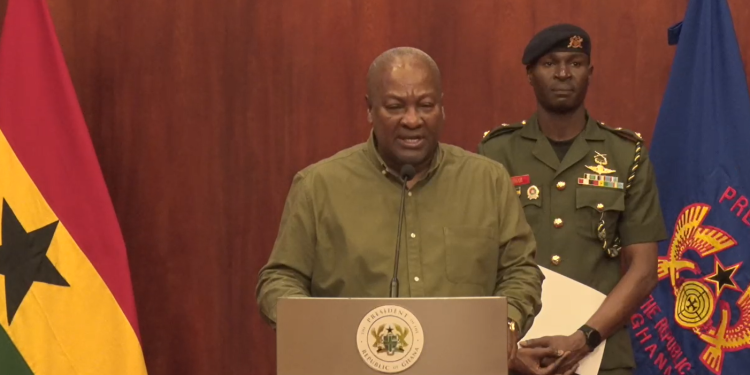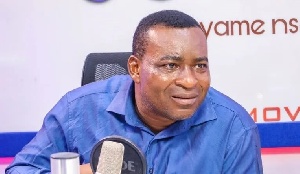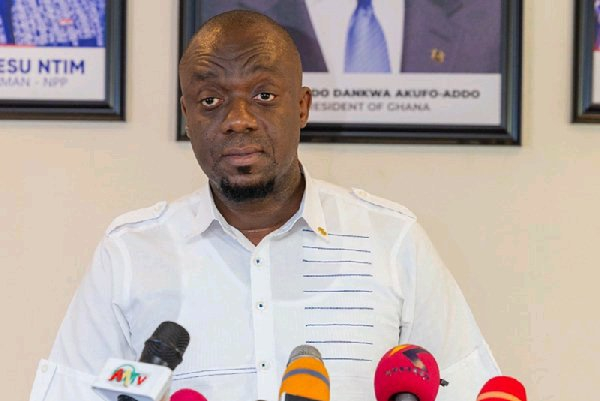Ghana’s political opposition sharply criticized President John Dramani Mahama on Monday, accusing him of staging a “publicity stunt” through his recent engagement with civil society groups on the country’s escalating illegal mining crisis.
The backlash follows a high-profile meeting last Friday, during which President Mahama met with civil society organizations (CSOs) to discuss his administration’s approach to curbing galamsey—a local term for illicit small-scale mining that has caused widespread environmental degradation across the West African nation.
While Mahama assured attendees of his government’s commitment to addressing the issue, and cited national security concerns for not declaring a state of emergency, the Minority in Parliament said the event lacked substance and failed to offer any new solutions.
In a press statement issued October 6 and signed by Kwaku Ampratwum-Sarpong, Ranking Member on Parliament’s Lands and Natural Resources Committee, the opposition accused the president of using the CSO engagement to distract from his administration’s “ongoing failure” to contain the crisis.
“It is clear that the encounter with the CSOs was a publicity stunt calculated to cover up the Government’s failed attempts at dealing with illegal mining,” the statement said.
The Minority cited rising levels of water turbidity, soil contamination, and deforestation as evidence that the situation is deteriorating, not improving—contrary to the president’s claims. A recent joint report by environmental watchdog Pure Earth and Ghana’s Environmental Protection Agency (EPA) found significant pollution in major rivers and farmlands, raising alarms about long-term risks to public health, food security, and the country’s potable water supply.
“How can the president look Ghanaians in the eye and claim he is winning the fight against illegal mining?” the statement read.
The Minority also drew a sharp contrast between Mahama’s current efforts and what they characterized as a more robust anti-galamsey strategy under the previous administration led by President Nana Akufo-Addo. Measures implemented between 2017 and 2022, the statement noted, included the formation of the Inter-Ministerial Committee on Illegal Mining (IMCIM), military operations dubbed Operation Vanguard and Operation Halt II, as well as the deployment of river guards and naval patrol boats.
Other initiatives included the introduction of mercury-free gold processing technology, the creation of Small-Scale Mining Committees in all 83 mining districts, and the rollout of community mining schemes designed to formalize small-scale operations and provide alternative livelihoods.
According to the Minority, many of these programs have been “abandoned, diluted, or renamed without reform” under the current administration, citing new but allegedly less effective initiatives such as “Responsible Cooperative Mining” and the “Blue Water Guards.”
They also questioned the Mahama government’s political will, arguing that bold leadership—not rebranding and rhetoric—is what the situation demands.
“The fight against illegal mining can only be won through bold, consistent, and effective action. Anything less would be a grave abdication of duty to the people of Ghana and to future generations,” the statement said.
The Minority called on traditional authorities, faith leaders, and civil society groups to “rise above partisanship” and hold the government accountable.
With illegal mining continuing to pose both environmental and economic threats, the opposition’s message was clear: Ghana’s crisis cannot be solved through optics and promises, but only through decisive, sustained action backed by political will.













